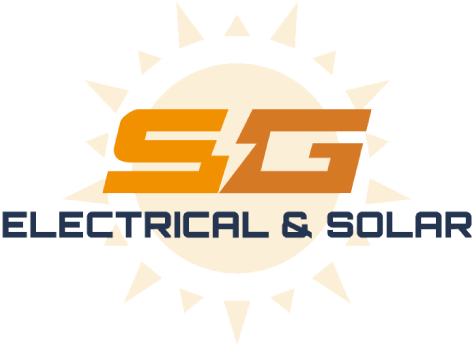FAQs
S G Electrical
Do I need batteries for my solar panel system?
Batteries are typically not required due to the availability of net metering from local utilities. During daylight hours, your home primarily uses power generated by the solar panels before drawing from the grid. At night, grid power is utilized. Any excess power produced by your solar system during the day is fed back into the grid, earning you credits for nighttime or cloudy day usage. However, if you're aiming for complete off-grid living, you'll need an inverter to store electricity in batteries.What happens when it is cloudy or raining, or it is night time?
Solar panels can still generate power in cloudy conditions, though output may vary depending on cloud density. For grid-tied systems with net metering agreements, your home uses solar-generated power when available. During nighttime or heavy rain, you'll draw energy from the grid as usual. On sunny days, excess power from your solar system is fed into the grid, providing you with credits for use during less sunny periods.Can my HOA prevent me from installing solar?
In California, homeowners associations (HOAs) are not permitted to prohibit solar installations. The only potential issue a homeowner might face is a request to relocate panels, and this is only if the relocation would decrease power production by less than 10%. This scenario is unlikely, as panels are typically positioned for maximum energy output, and relocating them would often result in more than a 10% reduction in power generation.How long does it take to install solar on a home?
For homeowners purchasing their system, the process typically takes 4 to 6 weeks from contract signing to completion. This timeframe includes obtaining necessary city permits, finalizing financing, and securing utility approvals. Solar power agreements may take longer, approximately 8 to 12 weeks. The actual installation is relatively quick, usually completed in 1 to 3 days.What rebates and incentives are available?
Currently, the federal government offers a 30% tax credit for solar installations. Additionally, the state of California provides rebates, with amounts varying based on the system's storage capacity and the homeowner's utility provider.What maintenance do solar panels require?
Solar panels are designed for minimal maintenance due to their lack of moving parts, which reduces the risk of mechanical failure. Regular rainfall typically keeps the panels clean, but occasional low-pressure water spraying can remove excess dirt or debris. Despite their glass construction, the panels are durable and built to last over 20 years. They come with production warranties, and if you have a solar power agreement, your system will be monitored for any production issues.What warranties do you offer?
Our company provides a two-year workmanship warranty covering the installation process. We also honor all manufacturer warranties for materials and equipment used in your solar system.How long does it take for a solar panel system to pay for itself?
The return on investment (ROI) for solar panel systems typically improves as energy rates increase over time. For customers who purchase their systems outright, the average ROI period ranges between 5 and 10 years.What types of electrical services do you do?
Our electrical services cover both residential and commercial needs. We offer a range of services including wiring, panel upgrades, lighting installation, and electric vehicle (EV) charger installation, among others.Are you licensed and insured?
Yes, our company holds all necessary licenses and maintains comprehensive insurance coverage to ensure the safe and professional delivery of our electrical and solar panel services.



